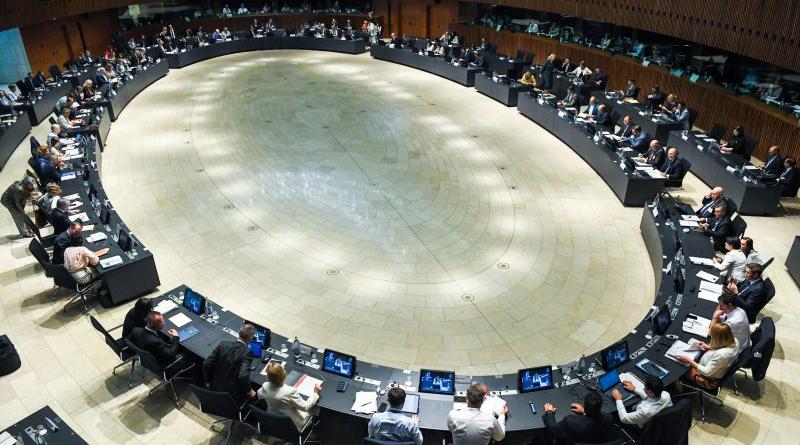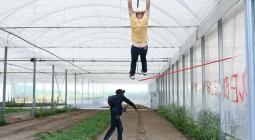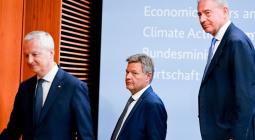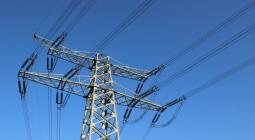France barred from ‘Friends of Renewables’ EU ministerial meeting

France was not invited to a meeting of pro-renewables countries on Monday (19 June) after Paris delayed the adoption of the EU’s renewable energy directive, an EU diplomat told EURACTIV.
The ‘Friends of Renewables’ gathering took place on Monday morning, ahead of a meeting of the EU’s 27 energy ministers in Luxembourg.
Ministers from 14 countries – Luxembourg, Austria, Spain, Greece, Malta, Denmark, Estonia, Portugal, the Netherlands, Germany, Latvia, Slovenia, Ireland and Belgium – attended alongside the European Commission’s energy chief Kadri Simson.
However, while France had signalled its intention to join the group, it did not receive an invitation to this meeting.
“I can confirm that France asked to join our Friends of Renewable Energy Group at an earlier point,” the EU diplomat told EURACTIV.
“Obviously, we welcome everyone who truly supports renewable energy and takes the deployment of renewables seriously,” the diplomat continued.
But “after their delaying of the renewable energy directive, France was not invited to today’s meeting,” they added.
Blockade was ‘negligent’ says Austrian minister
France, backed by other pro-nuclear EU member states, blocked the adoption of the EU’s new renewable energy directive (RED) last month, due to concerns that rules on renewable hydrogen would undermine the production of low-carbon hydrogen from nuclear power.
Agreement on the new law was unblocked on Friday (16 June) after Paris obtained further guarantees on nuclear as well as the production of ammonia derived from low-carbon hydrogen.
“France’s blockade of RED was negligent” given the speed of renewables roll-out needed, said Austria’s Leonore Gewessler, a key member of the renewables group.
She criticised the approach France took by stepping in to block the law after it had been agreed with the European Parliament. This shook the “foundations of the EU”, she said on Monday morning.
Meanwhile, France’s minister Agnès Pannier-Runacher said she was happy with the compromise found to solve the impasse.
“France was on a very ambitious position when it comes to renewables, but we wanted it so that non-fossil solutions were acknowledged,” she told journalists in reference to nuclear.
France also had a specific issue regarding ammonia production plants, which require heavy investments to decarbonise. “We were very focused on ensuring that those sites that were investing a lot to decarbonise could have some long-term legal frame that would encourage them to carry on decarbonising their sites and production,” Pannier-Runacher explained.
Coal subsidies
According to Luxembourg’s energy minister Claude Turmes, the meeting of pro-renewables countries aimed to push for a quick decision on the renewable energy directive, which is still to be finalised.
The meeting for the renewables-friendly group was also aimed to coordinate positions on the reform of the EU electricity market, he said.
There is concern from some EU ministers regarding a recent addition to the compromise text on the electricity market reform, which opens up the possibility of subsidising coal plants as backup power generators beyond 2025.
Those subsidy schemes – known as capacity mechanisms – were regulated in 2018 with a rule barring subsidies to power plants that emit more than 550 grams of CO2 per kilowatt hour.
Poland asked for a temporary derogation to the rule beyond 2025, in order to reduce the volume of natural gas consumed by the power sector and provide baseload capacity as backup to avoid blackouts.
“On Friday, the Swedish Presidency basically did something really astonishing which is weakening our climate policy by giving a waiver for Poland of the 550-gram rule, which means reopening the possibility to subsidise coal power plants,” said Turmes.
“I think we have a big bloc of countries that will reject that proposal of the Swedish Presidency in order to try to get coherence between this file and our climate files,” he declared.
EU ministers hope to agree on their negotiating position on the reform by the end of Monday. Meanwhile, the renewables energy law should be rubberstamped soon and passed into EU law.
cover photo:Ahead of the energy ministers meeting in Luxembourg today, 14 countries met to discuss renewable energy, but France was not in attendance [European Union]





